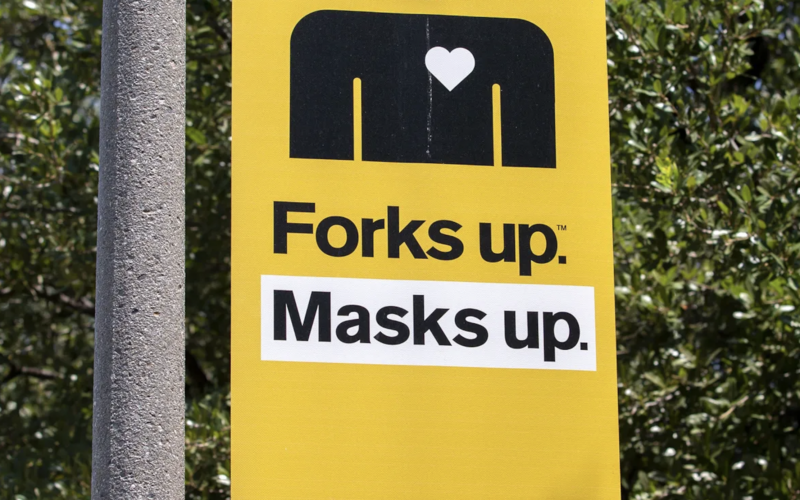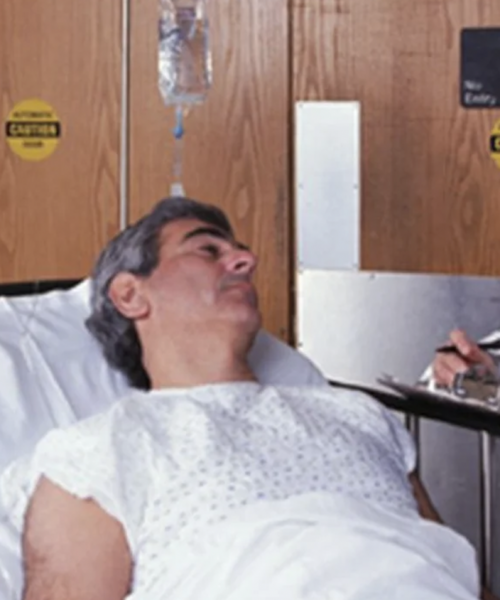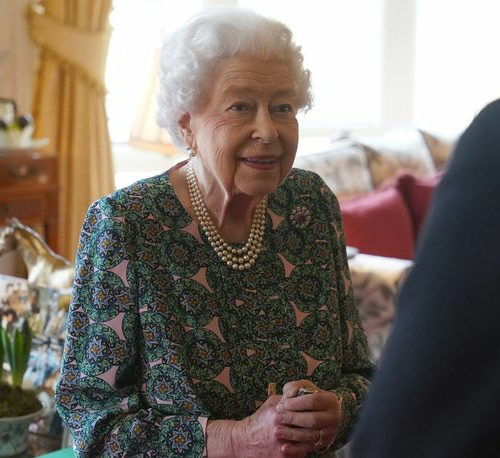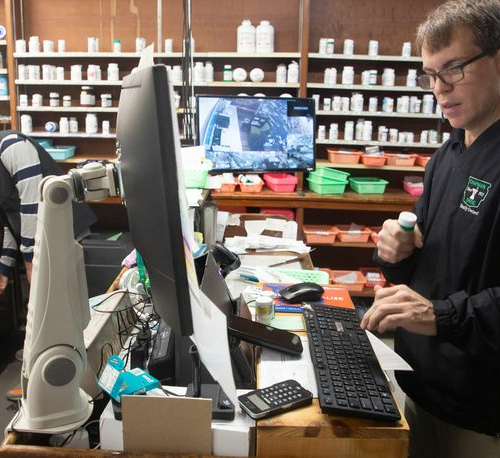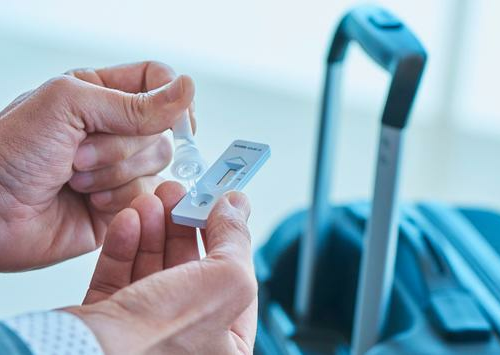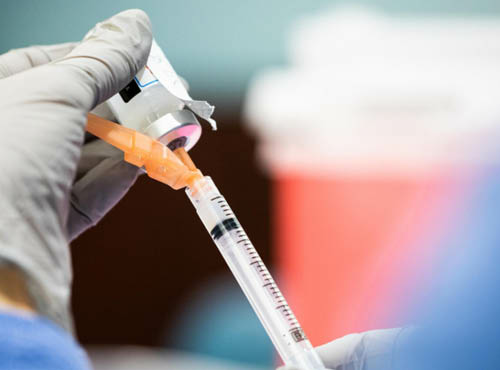Alison Steinbach | Arizona Republic
Troy Warren for PhoenixNewsAndTalk.Com #COVID-19
As Arizona universities and colleges get ready to welcome students back for the fall semester, they also face a challenge: How to combat COVID-19 on campus while complying with the state’s rules that restrict their methods.
Schools like Arizona State University had planned to require masks and twice-weekly tests for unvaccinated students, but the governor and lawmakers barred them from taking such action.
Now, the public universities are focusing their efforts on encouraging students to get the COVID-19 vaccine byraffling off prizes like scholarship money, gift cards and show tickets and by making vaccines available on campus. Private schools, which aren’t bound by the restrictions, and community colleges have a range of approaches from encouraging to requiring vaccination.
As the more contagious delta variant continues its spread, most of Arizona currently falls under “high transmission” for COVID-19, per the Centers for Disease Control and Prevention, with younger people less well-vaccinated than older people.
Will Humble, executive director of the Arizona Public Health Association, said Gov. Doug Ducey is “shooting himself in the foot” because more young people need to get vaccinated to help stop the pandemic.
“The single best policy leverage that anybody has in the state is the universities and the community college system, and what ASU had come up with was a perfect incentive,” Humble said, as requiring regular testing would have moved people off the fence to get the vaccine.
The three public universities and Arizona Board of Regents that oversee them did not publicly push back against the efforts to strip their authority, and the same day Ducey issued an executive order regarding masks, vaccines and testing, all of those entities said they would comply with the governor’s directive. State lawmakers included the same restrictions in the state budget, putting them in law.
Hosting incentive programs and convenient vaccine sites are “really all they can do at this point” to boost uptake, Humble said.
How schools will encourage vaccines
ASU, University of Arizona and Northern Arizona University all are giving students who show proof of vaccination a chance to win prizes.
At ASU, those have included gift cards, tickets to on-campus shows like “Hamilton” or prime seats at the ASU-UA football game. UA students who are fully vaccinated all get $5 credit for campus stores and are entered to win tuition and book scholarships — or even lunch with the university president. Vaccinated NAU students could win a season pass to Snowbowl, housing scholarships or an Apple Watch.
The incentive programs extend to other schools, too.
Tohono O’odham Community College in southern Arizona is giving all fully vaccinated students $250, regardless of whether they are on campus. The school also is requiring all students and employees get vaccinated before coming on campus. As is Diné College, another tribal college, and Prescott College, a private school, according to its website.

Beyond incentives for the public colleges, schools also are simply trying to get the message out for why students should get vaccinated.
“Make it so every time you turn around on campus it seems like there’s somebody there with a table set up with the vaccine,” Humble said.
The schools are not going that far, but administrators say they will make vaccines readily available at health centers and that they are working on other ways to boost uptake without a requirement.
Grand Canyon University, a private school, will not require vaccines for the about 25,000 students who will take classes on campus this fall, nearly 16,000 of whom will live on campus.
GCU will encourage the vaccine, first with any older employees, President Brian Mueller said, adding that he hopes some of the “rumors and the myths” about the vaccine will dissipate as the school year goes on.
“We’re going to educate, we’re going to educate, we’re going to educate, we’re going to educate, and I’m hoping that as the year goes on that education will have an impact and the numbers will grow,” Mueller said.
Maricopa Community Colleges, a public institution, will like the public universities strongly encourage but cannot require COVID-19 vaccinations.
ASU will emphasize the health reasons for getting the vaccine and that they are safe and effective. The school also is working on using students as spokespeople for the vaccine so young people influence their peers, ASU’s vice president of student services Joanne Vogel said. “Forks up. Sleeves up” signs and banners will go up around campus.
Staff will hand out care kits as students check-in for on-campus move-in, which will include vaccine and appointment information. Sun Devil Fitness Complex on the Tempe campus will serve as an additional vaccination site during student move-in.
Having students speak out about the impact of large numbers of unvaccinated people on campus could help, too, said Tara Sklar, director of UA’s Health Law and Policy Program.
That could include immunocompromised students or people who can’t get the vaccine sharing how people not getting vaccinated affects their health.
Different strategies may work for different groups on campus, she said, including competitions or peer pressure.
“Until the majority of people are vaccinated, there’s going to keep being variants,” Sklar said. “Every unvaccinated person is one more person contributing to a variant.”
Health officials:Masks recommended again for indoor use in many Arizona counties, all schools
Mandatory vaccines at many schools
More than 600 campuses nationwide have announced they will require vaccines in some form for at least some students or employees, according to a list compiled by the Chronicle of Higher Education. Most of the campuses are clustered toward the East Coast and West Coast and are in Democratic-leaning states.
New York state’s public colleges and universities, for example, will require all in-person students get vaccinated, pending full federal approval of the vaccines. The University of Illinois system is requiring vaccines for all students and employees who are able. Those who aren’t vaccinated have to undergo testing.
For schools without enough of the population vaccinated, campuses could become a hotbed for transmission of the virus. The delta variant has spread very effectively in unvaccinated areas, public health officials say, and the fear is that more contagious or vaccine-evasive variants could develop down the road.
Arizona’s overall vaccine rate trails the national average, with over 45% of Arizonans fully vaccinated compared to about 50% nationally as of Wednesday, according to CDC data.
Younger individuals are also less vaccinated than older individuals, although younger people tend to have less severe outcomes. Maricopa County data as of early August showed about 42% of those 15-24 have gotten at least one vaccine dose, compared with about double that rate for those over 65.

Arizona schools are largely returning to their regular in-person, pre-pandemic operations in the weeks ahead, with full dorms, classes and activities.
Prior to the governor’s action, ASU had perhaps the strongest plans to push the vaccine. It was not requiring vaccination, but rather “expected” students get the vaccine before classes start. Those who didn’t would have to undergo additional health checks and precautions.
ASU will have about 75,000 students taking classes on campuses this fall, with about 16,000 of them living on the four campuses.
UA had said it was going to follow CDC guidelines but hadn’t announced a plan like ASU’s. Campus is expecting to house 7,000 students in dorms along with more than 32,000 students coming for in-person classes.
NAU had not yet determined its mitigation plans for the fall when the executive order was released, per spokesperson Kimberly Ott. The school’s new president had just started the day before and NAU was preparing to work with him to guide plans for the semester. About 20,000 students will take classes on campus, with around 7,200 living on the Flagstaff campus.
Are you vaccinated? Yes, restaurant workers can ask you that. Here’s what it looks like in Arizona
Vogel at ASU said COVID-19 is not going away and it’s important to learn how to live with it while still protecting people.
“This is going to become endemic into the fabric of what’s happening,” she said. “There are pieces of this where we will need to carry on, but we do calculate and think about what we can do to promote health and to decrease risk to the environment, at the same time knowing that we’re all having to figure out how to live with COVID.”
How well-vaccinated are campuses?
Public schools cannot require students submit proof of vaccination, so it’s hard to gauge vaccination levels on campus. Here’s what school officials estimate:
- ASU: No clear picture yet for students overall. About 60-65% of incoming students self-reported on an orientation survey that they are vaccinated. About 77% of staff and about 83% of faculty provided evidence they are fully vaccinated.
- UA: No clear picture yet for students. Nearly 50% of those living in dorms have uploaded their vaccine documentation, but it’s not mandatory to do so. Over 80% of faculty and staff were vaccinated by the end of the spring semester, per COVID incident commander Chris Kopach.
- NAU: No clear picture yet for students. About 94% of employees planned to be fully vaccinated by the start of the semester, per an employee survey.
- GCU: Likely well under half of students will be vaccinated, based on GCU’s “guessing” from national numbers for that age group. Likely over 80% of on-campus employees will be vaccinated.
- Maricopa Community Colleges: No clear picture yet for students. A voluntary employee survey at the end of May got responses from about a quarter of employees, over 70% of who said they were fully vaccinated.
“If we end up somewhere there (60-65%), I think we should consider this a huge win in the young adult population,” Vogel said.
ASU officials expect to have a better picture of vaccination rates in mid-August once students are back in class and if they choose to upload their vaccine cards.
Masks recommended indoors
Also in the state’s restrictions is a ban on universities or community colleges mandating face coverings as a condition of attendance or academic activities.
Schools can’t do things like require masks be worn in small seminar classes or in busy student gathering places.
The CDC last week updated its guidelines to recommend everyone, vaccinated or not, wear masks in public indoor places in areas with higher COVID-19 transmission rates, which is all of Arizona as of early August. The state health department echoed those recommendations.
The three state universities plus Maricopa Community Colleges are all now recommending and encouraging everyone wear masks indoors. Masks are required at places like health centers, clinical settings and on campus shuttles.
ASU said requirements also may extend to certain buildings and events where there’s a higher risk of transmission, and people will be told ahead of time or at entrances if that’s required. It would apply to everyone regardless of vaccination status.

“I think there are moments where we might push harder to say, ‘This is a densely crowded place where you cannot safely physically distance, this is a place we would advise you, recommend that you wear your face covering,’” Vogel said.
GCU is an outlier on masks. The university does not plan to require or even encourage masks at the start of the semester, but Mueller said that’s something they can do if things don’t go as well as hoped based on planning and the positive experience ending last semester.
More:Teacher’s lawsuit against Phoenix Union district’s COVID-19 mask mandate headed to court
Testing and isolation for positive cases
Schools for the most part say they are following the same protocols as last year in terms of encouraging testing, isolation for positive cases and quarantine for close contacts.
ASU has the most ambitious plans for ongoing testing surveillance. The school will continue random sampling of the community through saliva-based testing as well as testing people with symptoms at health services.
“We are strongly encouraging that people participate. It gives us a gauge and an outlook on what the health of our community is,” Vogel said. “We haven’t lost the energy around testing.”
The goal is to test 28% of the on-campus population and 28% of the off-campus population each week. People will get notified of the random testing and can pick up a test tube, spit in it, drop it off and get results within 48 hours. Campus tests and cases are posted online on Mondays.

UA, NAU and GCU will have testing available to anyone who wants it or has symptoms. The schools have housing options on campus for students who need to isolate and quarantine. Some schools will also be monitoring for cases in dorms by testing the wastewater.
While public universities are not allowed to mandate testing, there is a provision in the new state law that they can require testing if there is a significant outbreak in student housing, which will be determined by state public health officials.
Schools impact broader communities
Sklar, the UA health law professor, said the law tying public universities’ hands for COVID-19 mitigation is not a long-term solution for the COVID-19 impacts that may hit campuses and surrounding communities.
“Spread isn’t going to be limited to what happens on campus,” she said, emphasizing that activity on the university campuses will impact the greater Phoenix, Tucson and Flagstaff areas.
All the schools say they are prepared to adjust their plans and scale back if needed, including moving back to online learning, depending how COVID-19 plays out on campus over the coming months.
“We’re watching the delta variant and we’re watching the increased contagious element of that, but we’re also watching the fact that young people are generally not negatively impacted by it,” Mueller at GCU said.
Delta spells trouble:Arizona COVID-19 cases and hospitalizations are going up as variant spreads
Since the pandemic began, those younger than 44 have made up about 61% of all known cases in Arizona but just about 4% of deaths, state data shows. In general, younger people have less severe impacts from COVID-19, but some do get quite sick or pass along the virus to vulnerable individuals in their families or communities around them.
Humble said chains of transmission of COVID-19 that start around campuses are guaranteed: “Mill Avenue, the clubs, the parties, the keggers, all that kind of stuff, all those apartment complexes that are full of young people.”
But the “huge difference” between last school year and now is vaccine availability, he said. COVID-19 will still amplify in the broader community, he said, but “people now have a choice about protecting themselves.”
In Other NEWS


























